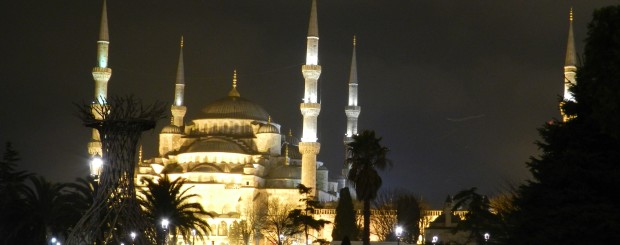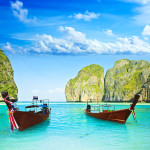Turkey Travel Tips
Passport
Before your departure from home, check your passport if it is valid at least for 3 months. Your stay in Turkey as a tourist is limited up to 3 months. Passport is required for domestic flights within Turkey.
Credit Cards
Major Credit Cards and Traveler’s cheques are accepted in big cities however you may need to carry some cash with you.
Time zone
Turkey’s time zone is Eastern European Time ( +2 GMT ) or check the time zone of your travel destination before you leave.
Weather
Before you go, check the weather forecast so you can bring appropriate clothing along. If you are visiting Turkey in winter time ( Nov, Dec, Jan, Feb, Mar), you will need your warm clothes as the temperature may drop down as low as -15 C ( 5 F ) especially in the central eastern parts of Turkey. Also, carry your umbrellas and raincoats with you.
July is the hottest month in Istanbul with an average temperature of 24°C (74°F) and the coldest is February at 6°C (42°F) with the most daily sunshine hours at 10 in August. The wettest month is January with an average of 100mm of rain. The best month to swim in the sea is in August when the average sea temperature is 22°C (72°F).
Currency and Exchange
The Turkish lira is divided into 100 kuruş, and is issued in denominations of 5, 10, 20, 50, and 100 TL notes; 5, 10, 25, 50 kuruş; and 1 TL coins.
Your bank will probably charge a fee for using an ATM abroad, and the Turkish bank may also charge a fee. Even so, you’ll get a better rate than you will at currency exchanges or at some banks.
Hotels and banks will change money, as will larger post offices, but in Turkey the rates are usually better at the foreign exchange booths (look for signs saying “foreign exchange” or “döviz”). Most are now connected online to the currency markets and there will be little difference between them.
Exchange bureaus are found only in big cities, usually in the center, so if you are heading to small towns make sure you change your money before leaving.
Bureaus in tourist areas often offer slightly less attractive rates—rarely more than 2%–3% difference—than bureaus in other places. Almost all foreign exchange bureaus are open Monday–Saturday. Hours vary but are typically 9:30 am to 6:30 pm. In tourist areas it is sometimes possible to find bureaus that are open later or on Sunday, but they will usually compensate for the inconvenience by offering a rate 2%–3% worse than during normal working hours.
İş Bankası (İş Bank) is Turkey’s largest bank, with many branches in the cities and at least one in each town, usually in the center of town.
Food matters
Although the sanitation is taken seriously and strictly controlled at tourist places by the authorities, some rare instances of diarrhea have occurred, that’s partly because of the hot and spicy meals eaten, or the guests may have a sensitive stomach. So, have some medicine with you against stomach upsets and diarrhea. Those who are vegetarian will be able to find vegetarian food or at least omelet which is very popular in Turkey, almost in every town. I would like to remind you that Turkish cuisine is among the top three along with Chinese and French.
Most of the restaurants display their food in windows, or waiters can bring the samples if you request. Also, the menu that shows available food can be found at your table, in tourist areas in English as well.
If you are eating out in a restaurant, waiters expect some tip usually 5 to 10% of your bill; you may leave it at the table separately.
Water
Although it is safe to drink tap water, that’s because the city water is chlorinated for sanitation reasons of which you might not like the smell, so it is recommended to buy bottled water for drinking which can be found at almost every store. You can safely brush your teeth with tap water.
Electricity
Those who use 110 V or any other than 220 V at home need a converter as Turkey has 220 V power systems. Please check your electric appliances before you use them in your hotel room. All sockets are round two pin.
Hotels
Usually hotel guests are not allowed to bring any food and drink into hotel rooms, but in most cases, this is tolerable.
All five star hotels have pools and others may have one too, you don’t need to take towels from your room, as towels are available at the pool free to hotel customers.
Don’t forget to return your hotel room keys before your departure from the hotel, as this will cost the friendly hotel receptionists a lot.
Some of the hotels have energy saving systems. You may need to insert the metal attached to your room key in a slot which is usually right beside the room door. When you remove it from the slot, all electric appliances including air-conditioning will automatically turn off. If you would like to leave your a/c on, separate the key from metal attachment and leave the metal in the slot while you can take the key with you.
Turkey is one of the safest countries in the world to travel, but some rare instances of crime, theft and robbery happen in big cities. Especially, if you would like to walk around the city at night, leave your valuable stuff, money and passport at hotel safety box. Almost every tourist hotel has a safety box service free to hotel customers.
Telephoning from your hotel room might be expensive, alternative would be to use the public phones available out on the streets, or in some hotel lobbies. All you need is to buy a telephone card from Post Office (recognizable by “PTT” sign), which comes in 30, 60 and 100 units.
If you are traveling independently, check which dates that the museums are open to visits. Most of the museums are closed to visits at least one day a week. Archaeological sites can be visited everyday from 9 AM to 5 PM ( this may change from summer to winter ).
Mosque Etiquette
Immodest clothing is not allowed but an attendant by the door will lend you a robe if he feels you aren’t dressed appropriately. For women, bare arms and legs aren’t acceptable, and men should avoid wearing shorts. Women should cover their heads before entering a mosque.
Shoes must be removed before entering a mosque; there’s usually an attendant who watches over them, or you can put them in your backpack or handbag, or use the plastic bags often provided near the entrance. It’s also advisable to show respect by talking only in whispers.
What Else!
In some of the museums, you are not allowed to take pictures or use flash, before you go in, just check if there is a sign with a camera crossed over, which means keep you camera in your hand bags, or check them in. Also, as a universal rule you are not permitted to touch any of the artifacts displayed.
Most Turkish people are friendly towards the tourist, probably the friendliest in the world, however some people may not be that way.
Bargaining is part of Turkish culture, before you purchase anything, try to get the prices down as low as possible. In most cases, just leave the shop or vendor and pretend to walk away, you will be probably invited back to his shop by the vendor asking what would be your best offer. Then, feel free to declare your own price for your purchase. Usually, bargaining margin starts from 10 % and may go up to 60-70%. This depends on your bargaining capabilities.
You may be approached by vendors at archaeological sites trying to sell ancient coins or fragments of a statue or a piece of pottery, don’t buy them, they are fake.
Usually customs check at entry and departure ports is not strict. However, customs officials are authorized to check your hand bags and suitcases. At their request, you have to open up your bags and suitcases.
If you are annoyed by street vendors trying to sell something to you, don’t look interested in their products and look the other way. Even if you start an innocent dialog, that may take half an hour to an hour costing you valuable time.
If you would like to contact or speak to local people especially kids, go ahead, they love it.
Some airline companies may require a final flight confirmation a few days before your departure flight, please check it with your travel agent.
Although there is no restriction on the sale and use of Alcohol which is available at stores, the guests should avoid drinking in public during the month of Ramadan.
Emergencies
If your passport is lost or stolen, contact the police and your embassy immediately. If you have an emergency, you’re best off asking a Turk to call an emergency number for you because it’s unlikely you’ll find an English-speaking person at the other end of the telephone, even at the Tourism Police. Bystanders will almost invariably try their utmost to be of assistance and will usually know of nearby hospitals or doctors. The Turkish words for ambulance, doctor, and police—ambulans, doktor, and polis, respectively—all sound about the same as their English equivalents, as does telefon for telephone. Say whichever is appropriate, and you can feel fairly certain that you’ll be understood.



